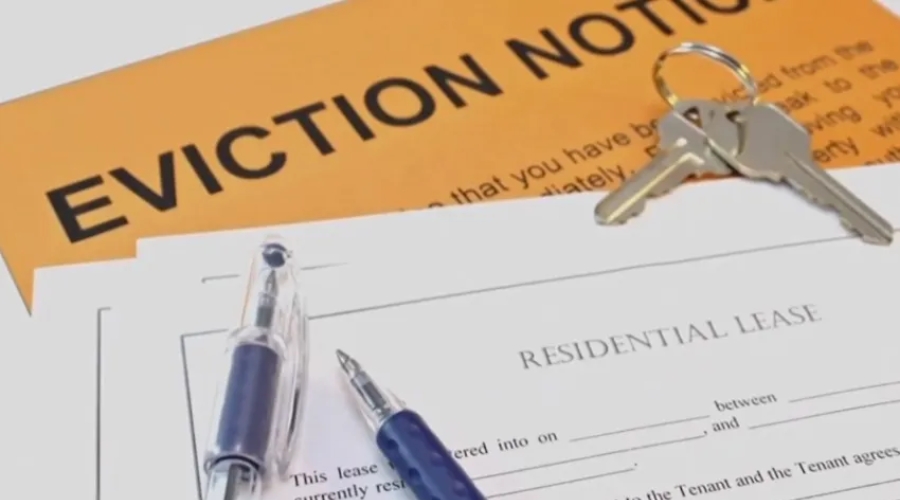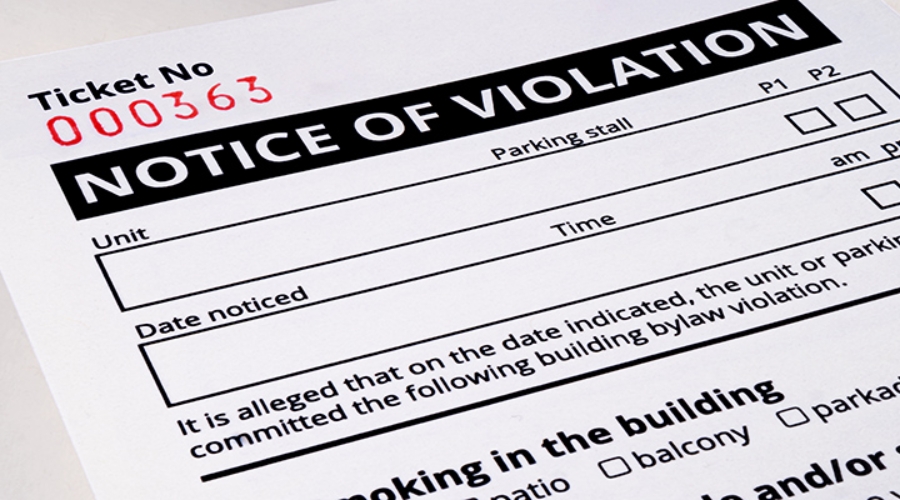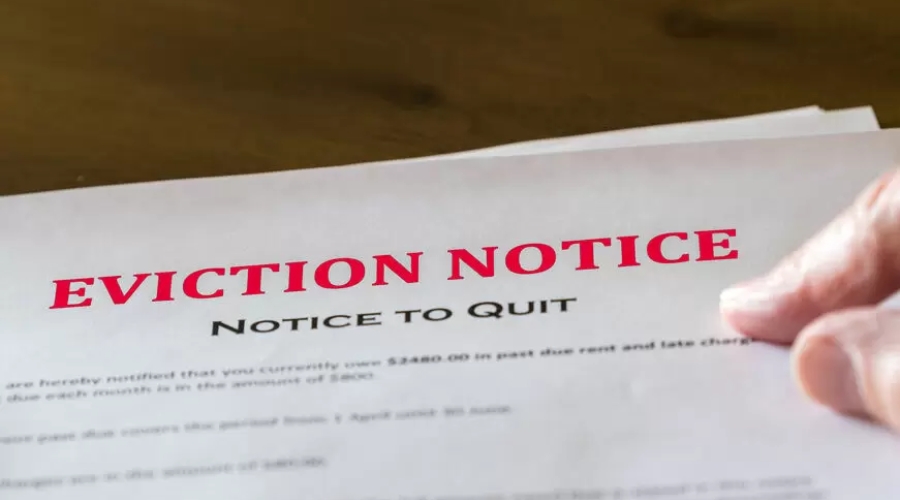Dealing with tenant problems isn’t easy, but knowing the eviction process in Massachusetts helps landlords take the right steps while staying within the law. Whether the issue is missed rent or broken lease terms, having a clear plan can protect both your property and peace of mind.
Lease Runner’s guide provides practical legal advice to help landlords avoid eviction issues, allowing you to save time, reduce costs, and maintain a smooth rental operation.
Seal Eviction Records: Key Updates to Massachusetts Eviction Laws (2025)
Massachusetts’s law has introduced important updates regarding the sealing of eviction records. Below is a breakdown of what the law covers, who qualifies, and how it affects both landlords and tenants.
What does this law do?
Effective May 5, 2025, under the Affordable Homes Act, tenants in Massachusetts have the right to request the court to seal their eviction records in certain situations. This new under-seal eviction records law is part of a broader legislative effort to expand housing access and tenant protections.
Sealing a record means that the public, including potential landlords, won’t be able to view those eviction records. The purpose is to help renters safeguard their legal history and avoid discrimination or difficulty when applying for future housing.
However, eviction sealing is not automatic. Tenants must file a formal request with the court, and a judge will review the case details before deciding whether to grant the request..

Eligibility & Process (Key Details)
Not all eviction records can be sealed in Massachusetts, but the law provides specific situations where sealing is allowed.
For example, tenants may request sealing if the case was dismissed, they won in court, the case was settled, or it involved a “no-fault” eviction—such as when a landlord sells the property or takes the unit off the market.
To initiate the sealing process, tenants must file a petition in housing court and include supporting documents to substantiate their request. Only the court can approve these petitions, and each case is reviewed individually.
Sealing is not allowed if the tenant had a fault-based eviction in the past seven years or attempts to seal a record before seven years have passed.
Importantly, tenants with sealed eviction records have the legal right to answer “no record” on housing or credit applications. These application forms must inform tenants of this right. Understanding and using this protection can help tenants avoid rental or credit denials and take a major step toward finding stable housing again.
Impact on Landlords & Tenants
For tenants, the ability to seal eviction cases offers a critical second chance — especially in situations where the court ruled in their favor or the case was dismissed.
Once sealed, these records are no longer accessible through public court databases and cannot be reported by consumer reporting agencies. This means credit scoring systems and tenant screening databases are also prohibited from displaying such records. This significant change directly impacts a tenant’s future ability to rent a home or secure financing.
But, landlords may face new challenges in tenant screening, as sealed records limit access to past legal disputes. Still, landlord rights remain protected. Property owners can still use all legally obtained information during the eviction process to make informed rental decisions. The law aims to strike a balance between protecting tenant privacy and preserving fair housing practices.
For help and more information, tenants can visit www.sealmyeviction.org or the official Massachusetts Housing Court website.
Legal Grounds for Eviction in Massachusetts
There are several lawful reasons a landlord can ask a tenant to vacate a rental property. Each reason falls under a specific legal category recognized by Massachusetts housing laws:
Non-Payment of Rent
Failure to submit rent on time is one of the most common reasons landlords begin the eviction process in Massachusetts. Even being a day late can be considered a breach, although some leases may offer a grace period.
If payment is overdue, the landlord must serve a formal 14-Day Notice to Quit, giving the tenant a window to settle the amount due. Should the tenant manage to pay the outstanding rent within that timeframe, the process stops there. Otherwise, legal proceedings may continue.
It’s important to note that any late fee charged must comply with Massachusetts housing laws. Landlords can’t apply a fee unless the lease outlines it clearly and a 30-day grace period is observed.
These tenant protections are part of broader legal safeguards in the state, including specific provisions under the Massachusetts Domestic Violence Law that protect victims from housing discrimination and unfair lease penalties.
Lease Violations
Rental agreements are legally binding. If a tenant breaks the rules in the lease, the landlord can start the eviction process. For tenants without a fixed-term lease (called "at-will" tenants), the landlord must give a 7-Day Notice to Quit.
If there is a written lease, the law in Massachusetts does not set a clear timeline for giving notice. Still, landlords should keep all documents to show they followed the proper steps.
Common lease violations include things like having pets without permission, smoking in restricted areas, or damaging the property. In these situations, landlords usually don’t have to give tenants time to fix the problem before starting eviction—unless the lease says otherwise.

Illegal Activity
If a tenant uses the rental unit for illegal activities—such as drug trafficking, possession of illegal firearms, theft, or acts of violence—the lease may be automatically voided under Massachusetts General Law (G.L. c. 139, § 19). This law allows landlords to immediately regain the right to possession of the property without further notice or legal delay.
In such cases, landlords may file an Unlawful Detainer to remove the tenant from the premises, even without issuing a traditional notice to quit. This also applies if the illegal acts are committed by the tenant’s guest or roommate.
This eviction process takes such behavior seriously, as it endangers the safety of the building and its occupants. Prompt action by landlords is both legally allowed and highly encouraged to maintain community standards.
No-Fault Evictions
A landlord in Massachusetts cannot evict a tenant during an active lease term without valid cause.
However, when the lease ends and there’s no renewal in place, they may pursue what’s known as a no-fault eviction. This means the tenant is not being removed due to any misconduct, but rather due to circumstances such as:
- The landlord intends to sell the rental property
- The landlord or their family member plans to move into the unit (owner-occupancy)
- Major renovations or repairs require the property to be vacated
- The landlord is ending a tenancy-at-will
In these cases, the landlord must issue proper notice—typically a 30-Day Notice to Vacate.
While no-fault evictions are not based on tenant wrongdoing, they still become part of the tenant’s official eviction record. Under Massachusetts law:
- Tenants can file a request to seal eviction records, including no-fault cases, after the case concludes and any appeals (if applicable) are complete.
- No-fault evictions are prioritized for sealing, as long as the tenant has not had a for-cause eviction in the past seven years.
Why this matters to landlords:
No-fault eviction is sometimes the only viable legal path to remove a tenant who may be causing issues, especially when a for-cause eviction fails due to lack of evidence or tenant resistance.
However, if the case is sealed, future landlords won’t see the prior eviction record during screening. This can limit a landlord’s ability to assess a tenant’s full rental history, potentially increasing the risk of renting to someone with a problematic track record that isn’t publicly accessible.
That’s why clear documentation and awareness of the sealing rules are essential for landlords navigating no-fault evictions..
Damage to Property or Health and Safety Violations
Tenants can be evicted for causing serious damage beyond normal wear and tear, or for creating health and safety risks. This includes things like breaking fixtures, making changes without permission, or keeping the unit in a way that attracts pests or mold.
Even in these cases, landlords must carefully follow the legal eviction process. That means giving the proper notice and keeping records to avoid legal trouble.
Squatters and Unauthorized Occupants
In Massachusetts, strict rules apply when someone is living in a property without a lease. A person isn’t legally considered a “squatter” unless they meet the conditions for adverse possession, which means they’ve lived on the property openly, without permission, for at least 20 years and acted like the owner.
If someone has recently moved in without permission, landlords can’t take matters into their own hands by changing the locks or throwing out belongings. Instead, they must follow the full legal eviction process through housing court. This ensures everyone’s rights are protected and the law is properly followed.
How to Serve an Eviction Notice in Massachusetts?
Before initiating legal action to recover possession of a rental unit, landlords must follow every step of the eviction process in Massachusetts, starting with properly serving an eviction notice. This initial step is not just a formality—it sets the legal foundation for the entire eviction case.
1. Choosing the Right Notice
Before initiating the eviction process, landlords must determine the correct type of notice to issue based on the specific reason for termination.
If a tenant fails to pay rent, landlords must issue a 14-Day Notice to Quit. For lease violations unrelated to rent, a 7-Day Notice to Quit for Lease Violation is required. In no-fault situations, such as ending a month-to-month tenancy, a 30-Day Notice to Quit must be used. Selecting the wrong type of notice can delay the entire eviction process and potentially result in dismissal of the case in court.
2. Including Mandatory Information
Each notice must clearly state essential elements required under Massachusetts law. This includes the tenant’s name, the address of the rental unit, the reason for the notice, the date it was issued, and the deadline for the tenant to take corrective action (if applicable). Omitting required details can result in the court dismissing the case, slowing down the eviction process.
3. Delivering Notice with Proper Methods
Massachusetts strictly limits how eviction notices can be delivered. A constable or sheriff—never the landlord or their attorney—is responsible for serving the notice. Acceptable delivery methods include:
- Handing the notice directly to the tenant
- Affixing the notice in a visible and secure area at the tenant’s address
- Mailing it via first-class mail with proof of service.
These methods must be executed before filing the formal complaint with the court, and serve as the legal starting point
4. Avoiding eviction mistakes
Errors in serving notice are one of the leading causes of eviction delays or dismissals in Massachusetts courts. Landlords must ensure strict compliance with all procedural rules—including timelines, service methods, and document accuracy. Any misstep can force the landlord to restart the eviction process in Massachusetts, costing both time and resources.
Step-by-Step Eviction Process in Massachusetts
Navigating the eviction process requires strict adherence to legal steps. Landlords must follow a legal procedure to ensure compliance with state regulations and avoid delays or case dismissals. Each phase plays a crucial role in lawfully regaining possession of the rental unit.

Step 1 – Serve the Correct Notice
The process begins when the landlord delivers a legally appropriate notice to the tenant. The type of notice depends on the reason for eviction—whether it’s due to unpaid rent, lease violations, or the end of a tenancy.
For example:
- Nonpayment of rent: Typically requires a 14-day notice.
- No-fault terminations or end-of-lease scenarios: May require a 30-day notice.
Step 2 – File a Summary Process Complaint
If the tenant doesn’t vacate or resolve the issue by the end of the notice period, the landlord can file a summary process complaint in the local Housing Court or District Court. This officially begins the eviction process in Massachusetts.
Landlords must complete court forms accurately and file them by the correct deadline (typically on a Monday to receive a court date the following week). Any paperwork errors can delay the case or lead to dismissal.
Step 3 – Serve Summons & Complaint
Once the complaint is filed, a summons and a copy of the complaint must be delivered to the tenant. This must be done by an authorized individual, often a sheriff or constable. Timing is critical here—these documents must be served at least seven days before the scheduled court hearing date. Incorrect service can invalidate the entire action.
Step 4 – Court Hearing or Default
At the court hearing, both parties present their evidence. If the tenant doesn’t show up, the court may issue a default judgment in favor of the landlord. If both attend, the judge can either:
- Encourage mediation
- Issue a decision after reviewing the facts
- Dismiss the case if court procedures weren’t followed
Tenants have the right to file an “Answer” before the hearing and may include counterclaims if they believe the landlord violated housing standards or lease terms. If the judge rules for the landlord, the case proceeds to the next phase — unless the tenant files an appeal within 10 days.
Step 5 – Writ of Execution Issued
If the landlord wins and no appeal is filed, the court will issue a Writ of Execution — a legal order allowing the sheriff to evict the tenant. This writ cannot be issued until 10 days after the judgment to allow time for appeal.
This document is essential to continue the eviction process in Massachusetts legally. Landlords cannot evict on their own — doing so is considered illegal "self-help eviction."
Step 6 – Sheriff Enforces Eviction
The final phase involves the sheriff or constable carrying out the physical eviction. This step must be scheduled according to legal procedures and cannot proceed without the writ of possession.
Once the writ is served, the tenants typically have 48 hours to vacate the property. If they fail to leave within that timeframe, the officer may forcibly remove the tenants and their belongings. After the eviction is completed, legal possession of the property is returned to the landlord.
Massachusetts Eviction Timeline & Costs
Understanding both the timeline and expenses involved is crucial for landlords navigating the eviction process in Massachusetts. The table below outlines each key stage along with estimated timeframes and typical costs based on current state procedures.
Documentation Landlords Must Save for Eviction in MA
To legally evict a tenant in Massachusetts, landlords need to keep clear and organized records. These documents help prove your case in court and show that you followed all the steps required by state law. Below are the essential documents every landlord should keep on file:
Lease agreement and payment records
A written rental agreement—whether month-to-month or a fixed-term lease—outlines the terms and conditions of tenancy. Landlords must keep a signed copy of this document, along with:
- A complete rent ledger showing all rent payments received, including dates, amounts, and methods of payment.
- Any late payment notices, bounced checks, or correspondence related to unpaid rent.
This information is crucial in nonpayment of rent evictions, which are among the most common grounds for removal under Massachusetts housing law.
Copies of notices served with proof
Before starting legal action, landlords must issue proper notice to tenants, such as a 14-Day Notice to Quit for overdue rent or a 30-Day Notice for lease violations or at-will tenancy terminations.
Equally important is the method of service. You must retain:
- A copy of each notice served.
- Proof that the notice was properly delivered—either by constable, sheriff, hand delivery with signed acknowledgment, or certified mail with return receipt.
Without valid proof of notice, courts may reject your eviction case during the summary process hearing.
Photos, videos, and witness notes for lease violations
If the eviction process in Massachusetts is based on lease breaches, such as property damage, unauthorized occupants, nuisance behavior, or illegal activities—you’ll need solid evidence:
- Time-stamped photos and videos that clearly show the violation.
- Written statements from property managers, neighbors, or maintenance staff who witnessed the issue.
- Logs or inspection reports documenting repeated problems.
This visual and testimonial documentation can be vital in just cause evictions, where the burden of proof rests heavily on the landlord.
Communications via email or certified mail
Consistent, well-documented communication can demonstrate that the landlord made reasonable efforts to resolve the issue before pursuing eviction. You should save:
- All emails, text messages, and letters discussing rent issues, behavioral concerns, or lease-related disputes.
- Copies of certified mail sent to tenants, with tracking details or signed receipts.
This correspondence shows your transparency and can help defend against claims of retaliation or improper notice.
Practical Tips for Massachusetts Landlords to Avoid Eviction

Use professional Lease Agreement forms
Starting with a well-drafted lease is one of the best ways to prevent future legal issues. A clear, professionally written lease outlines each party’s responsibilities and helps enforce terms if problems arise. Without it, the eviction process in Massachusetts can become lengthy and unclear.
Choose lease agreement templates reviewed by attorneys or trusted rental platforms to reduce confusion and protect yourself from disputes.
Run Eviction Check before leasing
Before signing a lease, always screen your applicants. Running a background and eviction check can help you avoid tenants who have a history of missed payments, property damage, or prior evictions. This simple step often saves landlords from entering the eviction process altogether. Screening can include court records, rental references, and income verification.
Avoid self-help eviction and ensure proper notice
Massachusetts law strictly prohibits “self-help” evictions. You can’t change the locks, shut off utilities, or remove a tenant without a court order. To legally start the eviction process in Massachusetts, landlords must serve the correct notice:
- 14-day notice for nonpayment of rent
- 30-day notice for no-cause terminations or lease violations
If you skip this step or act outside the law, your case could be dismissed, and you may face penalties.
Document the property condition with the Wear and Tear guide
Before a tenant moves in, create a detailed checklist of the property’s condition. Include photos or videos of walls, floors, appliances, and fixtures. This record will help you prove any damage later and defend your claims during the eviction process, especially if security deposit rules in Massachusetts disputes arise. A signed checklist from the tenant shows transparency and sets clear expectations from day one.
Seek legal aid for complex cases
Not every case is simple. If you're dealing with a difficult tenant, property damage, or multiple lease violations, it’s smart to speak with a local attorney or a housing law expert. Massachusetts offers Housing Court services, and some legal aid organizations assist landlords in navigating this eviction process. Legal support can help you follow the correct steps and avoid costly errors.
Bottom Line
Navigating the eviction process in Massachusetts can be complex, but the right preparation makes all the difference. By using solid lease agreements, screening tenants thoroughly, and following proper legal steps, landlords can avoid costly disputes and protect their investments.
Staying informed and proactive helps you handle potential issues with confidence and within the law. For more resources to support your rental business, explore everything Leaserunner has to offer.
FAQs
1. Can a landlord evict during the winter months in Massachusetts?
Yes. Evictions can legally occur during winter in Massachusetts. However, tenants may apply for a stay of execution based on hardship, especially during colder months. The court has discretion to delay the physical eviction, but only temporarily. Utilities cannot be shut off, and “self-help” eviction is still prohibited. The eviction process in Massachusetts continues year-round, but winter protections exist to safeguard vulnerable tenants in extreme weather.
2. What is the minimum eviction notice in Massachusetts?
In Massachusetts, the minimum eviction notice depends on the reason for termination. For nonpayment of rent, landlords must provide a 14-day notice to quit. If it’s a no-fault eviction or tenancy at will, the required notice is typically 30 days or one full rental period, whichever is longer. It's important that the notice is served in writing and complies with state law to be legally valid.
3. How long does it take to evict a tenant at will in Massachusetts?
Evicting a tenant at will in Massachusetts can take anywhere from 30 to 90 days or more. After serving a 30-day notice, the landlord must file a court complaint if the tenant doesn’t leave. The court process, including the hearing, judgment, and execution (which may take 10 more days), can stretch the timeline significantly.



